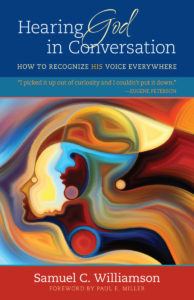A hundred years ago, prominent elements of the Western World’s political and intellectual elite embraced a new and exciting scientific theory. Leaders cheered it from conservative and progressive parties, from among the rich and poor, from feminists and misogynists.
[Click here to listen to this article in your podcast app, with added commentary]

Its theory was a natural evolution of Darwinism, and it was applauded by:
- Scientists like Alexander Graham Bell and Charles Davenport,
- Politicians like Woodrow Wilson and Winston Churchill,
- Authors like George Bernard Shaw and H. G. Wells
- Activists like Margaret Sanger and Francis Galton (a cousin of Darwin).
University presidents from Harvard and Stanford praised it. High schools and colleges taught it. Mainstream media loved it. To doubt it brought scorn, ridicule, and accusations of ignorance. It united thinkers from the United States, Canada, Australia, Asia, Britain, and Europe.
Because of it, most US States adopted laws that affected marriage, immigration, and treatment of mental patients. In 1927, the United States Supreme Court upheld such supporting laws.
Enormous funding furthered its advancement. Societies were established to promote its message and enact laws that bolstered its meaning. It was backed by the American Medical Association, National Academy of Sciences, and the National Research Council. To deny it was to deny science and invite disgrace.
Darwin’s activist cousin Galton coined the name for this scientific “discovery”: Eugenics.
When Science Births Pseudo-Science
Eugenics is control of human reproduction to increase qualities its sponsors support (i.e. to make more people more like themselves) and to eliminate traits its biased backers despise.
Today we know that the theory of Eugenics was pseudo-science, a belief backed by personal bias without scientific process. People just wanted it to be true. Its acceptance resulted in tens of thousands of forced sterilizations (California administered the most), and ultimately it led to the forced “extermination” of millions under the Nazis who backed Eugenics religiously.
Why would scientists (and intellectuals and politicians) support such a fairy-tale hypothesis?
Thomas Kuhn answers this question with his 1962 book, The Structure of Scientific Revolutions, a book that challenged the modern understanding of scientific progress. Kuhn disputed the classic idea of the scientific process, which believed progress was built on impartial, methodical contributions, much like a wall is built by placing one brick on another.
Instead, Kuhn argued, scientists have biases based on a blend of enthusiasm, education, and personal culture. These biases interpret data in ways that support their prejudices.
A consensus among scientists creates a prevailing pattern of assumptions (a scientific zeitgeist). Science continues to add additional data (brick by brick). Bu soon contrary information arises. At first it is first explained away by the dominant prejudices. Eventually, though, the weight of so many anomalies force a revolutionary change in thinking that Kuhn called a “paradigm shift.”
Which is what happened to Eugenics after WWII.
The New “Science” of Identity
Bertrand Russell, highly influential 20th Century philosopher and mathematician, said:
You are the product of causes that had no prevision of the end they were achieving. All your hopes, all your fears, all your loves, all the beliefs of your mind are nothing but the accidental collocation of millions of atoms and molecules.
Russell claims you were an accident. The brain cells and DNA that embody you are mere chance. If you want meaning in life, you must create it. There is no master plan to discover.
Therefore we don’t find identity inside by examining that “accidental collocation of atoms,” nor do we find it outside by looking for a master architect. Our identity is who we choose to be.
More than deity or family, our greatest loyalty, our first commandment must be: Thou shalt have no other god beside Choice (1 Russell 1:1).
Russell had no scientific basis for lack of design. It’s just an assertion, a contemporary Declaration of Independence from a God who could say,
I made humanity with a design, with a specific life-style in mind, with my morality. If you abandon it, your life will disintegrate.
These modern pseudo-scientists tell us that our assertion of a God-blueprint is tyranny; in fact, they say it is oppressive to tell people to live in a certain way, to get identity outside of choice. But there are three (at least) logical problems with this position:
- If all our “beliefs” are just accidents, then so is Russell’s belief. So why listen to him?
- If I “choose” to believe in a God-design, how can others say my “choice” is any less valid or any more tyrannical than their choice?
- If I’m a goldfish, no matter what my accidental mind believes or what my open-minded choices are, when I leave the liberty of water, I’m just a beached whale. Only smaller.
The God Who Is There
But there is a God, a God different than our “accidental beliefs,” a God who “made the earth by His power and established the world by His wisdom and who stretched out the heavens by His understanding” (Jer. 10:12):
- A God who is “acquainted with all our ways” and who “calls us by name;”
- A Creator who “formed our inward parts” and who hates to see His creation mutilated;
- An Artist who calls us his “masterpiece” and the “crown of creation;”
- A Bridegroom who chooses us, out of all the cosmos, to be his beloved bride.
If given a choice, I’d choose His life of design over the shortened life of a beached Shamu.
Sam
++++++++++++
I wrote my book, Hearing God in Conversation, to help all of us (including its author) connect with the God who is our Father and Designer; to hear and know Him personally.
To find our identity in Him as his children, friends, and bride.
If you want to nurture a personal, intimate relationship with God, may I suggest you buy Hearing God in Conversation.
Eugene Peterson said,
I picked it up out of curiosity, and I couldn’t put it down.
Gary Wilkerson wrote,
This is a remarkable book that teaches both how to hear God’s voice in Scripture, and then to hear his voice in every avenue of life. It’s filled with humor, insight, practical tips, and sound theology. I can’t recommend a better guide than Hearing God in Conversation.


 My First Parachute Jump … and My Last
My First Parachute Jump … and My Last
Everyone has a religion, even those who claim they do not. The only option is to “choose for yourselves this day whom you will serve.” (Josh 24:15)
Great quote. Yes, we all have a religion, we all believe in something.
And we hate any contrary “anomalies” to our chosen god.
Many intelligent people remind me of the religious rulers in Jerusalem, who saw the wonderful healings and other miracles that Jesus was doing and still refused to accept Him as Lord. They wanted some additional, less ambiguous (?), proof that He was the Messiah.
The marvelous design of every single itty bitty spider, bird, fish and the metamorphizing of a lowly caterpillar into a flying machine are amazing “accidents” that work perfectly just as they are. These creatures simply cannot be lucky winners when there are literally billions of perfectly complete and functional creatures everywhere around us. When this proof of design is ascribed to accidental experimentation on that animal’s level, it potentially damns the person who believes that lie. Eyes that will not see, and ears that will not hear, are those of dead men and women.
I know. People call Christianity a “leap of faith,” but isn’t choosing “accident over design” a bigger leap of faith?
Non-believers and believers alike choose to tune out anything that contradicts our beliefs. Non-believers tune out beauty, meaning, purpose, creation, eyes and spiders and metamorphosis; and Christians tune out anything that contradicts their mental image of God (instead of choosing the God as He reveals Himself in Scripture).
As I used to tell patients, “Sam, God did not make you a goldfish.” The God who is there made us according to His design and gave us the ability to make moral choices. However, we do not have the option of defining the consequences of the choices we make. The eugenics of one hundred years ago was based on hubris and a rudimentary understanding of gene function, replication, and expression. Our understanding has increased, but is by no means complete, and hubris is further inflated.
In the meantime, some of us who are missing a base pair, who would be humanely euthanized if Peter Singer had his way, recognize the goodness and faithfulness of the God who is there, rejoice in His redemption of our fallenness, and await the day when He will make all things new and complete.
Yes, eugenics is hubris, pride, self-centeredness, self-boasting; and ignorance. The essence of eugenics is to say, “I am the best … and I should make the rest of the world exactly like me.”
It is the logical end of self-esteem.
If, on the other hand, we say God loves us simply because he loves us (not because of our smarts, beauty, usefulness, or worthiness), then we have to be humble. But confidently humble; after all, we are the apple of God’s eye.
Sam
I have been a big fan of articles which explain and condemn the Eugenics movement. It is a “Time in our history” that grew out of the tenets of Darwinism and continues to this day.
It is interesting to see that the BLM, and others, now lobbying for any non-colored races (particularly “Non-Black”) to publicly renounce and apologize for Eugenics in our history. They say, we should even make a required class for our children to discuss and apologize for the adaptations of Eugenics in our society. Under the guise of “equality”. Yet no one defends the Christian viewpoint that “all men are created equal”. Discrimination is even condemned in our Constitution and Bill of Rights
BUT the practice, and mindset, of Eugenics CONTINUES TODAY, and no one is asking Planned Parenthood to apologize or to stop its current day policy of encouraging Eugenics. PP would say that: “It is Not (or is no longer) the Goal of Planned Parenthood to ‘weed out’ inferior races and social classes”. Although that certainly was the expressed goal of Margret Sanger, its founder.
Good approach to a “touchy subject”, Sam. Thanks
Thanks!